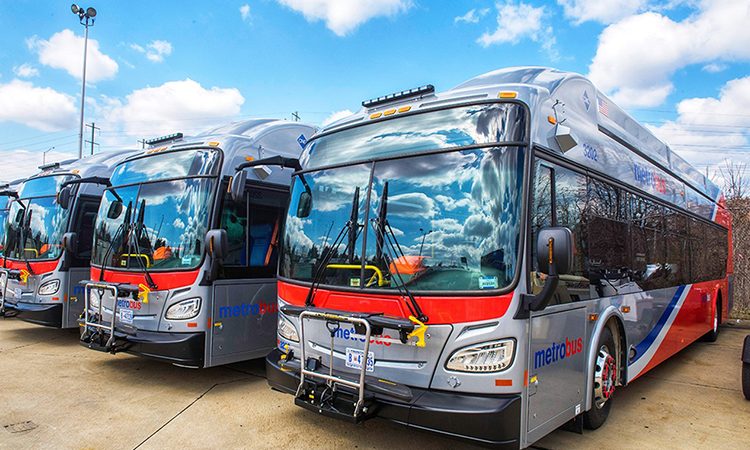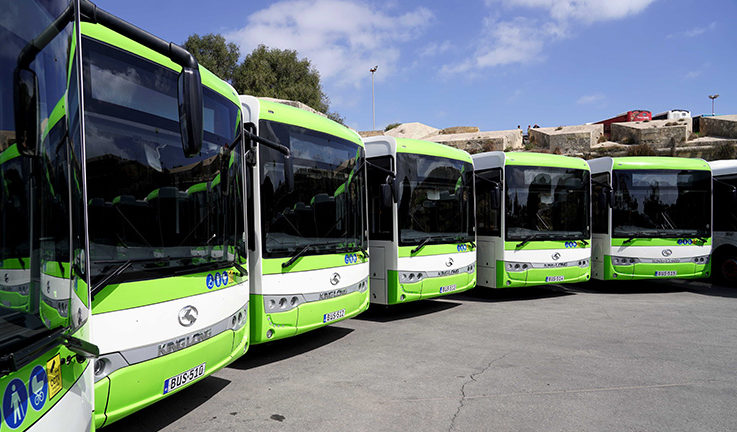
Photo: WMATA
Washington brings zero-emission bus plan forward three years
27 March 2023
by Christopher Carey
The Washington Metropolitan Area Transit Authority (WMATA) has released an updated plan for the transition to a 100 percent zero-emission fleet by 2042 – accelerating the previous timeline by three years.
According to WMATA, the move to zero-emission buses will require significant investment and work with local utilities to upgrade power supplies, install charging equipment and supporting infrastructure, and provide training and maintenance – in addition to the cost of replacing the almost 1,600 buses in the fleet.
“We will continue to look for ways to further accelerate the transition to zero-emission buses, which provide customers with the same safe, reliable service at a much smaller carbon footprint,” said WMATA General Manager and CEO, Randy Clarke.
“Every trip taken instead of a car reduces greenhouse gas emissions and transitioning to zero-emission buses will deliver additional environmental and health benefits while improving the quality of life for people across the region.”
The cost of the transition over the lifecycle is estimated to be US$2.3 billion above the costs associated with the existing fleet.
WMATA will also seek additional federal, state and regional funding opportunities, such as grants, to help pay for the transition.
New timeline
Under the new timeline, half of the agency’s bus fleet will be zero-emission in 10 years.
To accommodate the new buses, WMATA will open its first all zero-emission bus garage in 2027, with five of its nine garages expected to be ready for zero-emission buses by 2031 and the remaining facilities operational by 2041.
The agency will initially deploy battery electric buses, which it says is the most developed and cost-effective technology available today.
Hydrogen fuel cell technology will continue to be evaluated as the cost, technology and commercial viability evolve.
Zero-emission bus deployment is expected to begin in 2023 from the agency’s Shepherd Parkway Bus Division.
WMATA has received a US$4.2 million Federal Transit Administration (FTA) grant to support the purchase of two electric buses. The agency has also recently awarded contracts to two bus manufacturers to provide five buses each, with the buses expected to be delivered in 2024.
US market
According to a report released last month by transport non-profit CALSTART, the US e-bus market has experienced a 66 percent increase since 2021.
As of September 2022, the total count of full-size battery-electric and fuel-cell electric transit buses had reached 5,480, from 3,297 in 2021.
There were about 72,700 full-size buses in operation in the US in 2019, which is the most recent year with data available, according to the American Public Transportation Association (APTA).
Much of the growth in e-buses has been driven by federal incentives. The movement had a sharp surge following the Bipartisan Infrastructure Law, and has also been spurred by state efforts, such as plans in California to phase out fossil fuel-powered buses by 2040.
Image: WMATA











